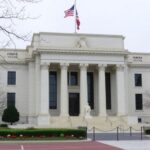Majority of Americans Fear Prolonged Government Shutdown’s Economic Blow, CBS Poll Shows
In a stark reflection of mounting frustration, a new CBS News poll reveals that 62% of Americans are deeply concerned about the government shutdown‘s impact on the U.S. economy, with disapproval ratings for Congress and President Trump hitting record highs. As the standoff enters its third week, public opinion is shifting dramatically, highlighting fears of rising inflation and long-term economic instability.
- CBS Poll Uncovers Surging Worries on Shutdown’s Economic Ripple Effects
- Public Opinion Turns Sharply Against Congress and Trump’s Shutdown Stance
- Inflation Anxieties Escalate as Shutdown Disrupts Supply Chains
- Broader Economic Sectors Feel the Shutdown’s Crushing Weight
- Pathways to Resolution and Lingering Economic Shadows Ahead
CBS Poll Uncovers Surging Worries on Shutdown’s Economic Ripple Effects
The latest CBS News survey, conducted between December 10 and 12 among 1,200 adults, paints a troubling picture of national sentiment. A whopping 62% of respondents expressed significant worry over how the prolonged government shutdown could derail the U.S. economy, up from 48% just two weeks prior. This surge in concern comes as federal workers face unpaid salaries and essential services teeter on the brink, amplifying fears among everyday Americans.
Among Democrats, 78% voiced alarm, while even 51% of Republicans shared similar anxieties, indicating a rare bipartisan consensus on the economic peril. The poll also delved into specific fears: 55% of participants worried about job losses in the private sector, and 49% cited potential spikes in inflation as grocery prices and interest rates climb amid uncertainty.
“The government shutdown isn’t just a Washington D.C. problem—it’s hitting wallets across the country,” said pollster Anthony Salvanto during a CBS broadcast. He noted that younger voters under 35 were particularly vocal, with 70% blaming the impasse for their pessimistic economic outlook.
To contextualize, the current shutdown, sparked by disputes over border wall funding, marks the longest in U.S. history, surpassing the 21-day record set in 1995-1996. Federal agencies like the Department of Homeland Security and the IRS are operating on skeleton crews, delaying tax refunds and immigration processing that could indirectly fuel economic slowdowns.
Public Opinion Turns Sharply Against Congress and Trump’s Shutdown Stance
Public opinion on leadership has soured rapidly, with the CBS poll showing 68% disapproval of how Congress is handling the government shutdown—a 12-point jump from last month. President Trump’s approval rating on economic matters plummeted to 42%, his lowest since taking office, as 59% of Americans now view his border security demands as the primary obstacle to resolution.
Breaking it down by party lines, 92% of Democrats disapprove of Trump’s approach, but notably, 45% of independents and 28% of Republicans agree that the shutdown is unnecessary. Senate Majority Leader Mitch McConnell faces 61% disapproval within his own party for not pushing harder for a compromise, according to the survey.
House Speaker Nancy Pelosi, while faring better at 55% approval among Democrats, still grapples with 72% overall disapproval for the legislative gridlock. “Congress has failed the American people,” Pelosi stated in a recent press conference, vowing to pass funding bills without wall provisions. Trump, in a White House address, countered: “The wall is essential for national security, and I’m willing to negotiate, but not at the expense of our borders.”
This divide underscores a broader erosion of trust in institutions. The poll found that only 34% of Americans believe Congress prioritizes the economy over partisan politics, down from 47% in 2017. Economists warn that such polarization could exacerbate the shutdown’s effects, with furloughed workers—over 800,000 strong—already reporting delayed home payments and canceled vacations, rippling into local economies.
Inflation Anxieties Escalate as Shutdown Disrupts Supply Chains
One of the most pressing concerns bubbling up in the CBS poll is the specter of inflation, with 52% of respondents fearing price hikes in essential goods due to the government shutdown. The impasse has halted inspections at ports of entry, slowing imports of everything from fresh produce to auto parts, which experts say could add 0.5% to the Consumer Price Index in the coming months.
Federal Reserve Chair Jerome Powell recently highlighted these risks in testimony before the Senate, stating, “The government shutdown introduces unnecessary volatility into the U.S. economy, potentially stoking inflationary pressures if prolonged.” Data from the Bureau of Labor Statistics shows core inflation already at 2.2% year-over-year, and analysts from JPMorgan predict it could climb to 3% if the shutdown extends into January.
Consumers are feeling the pinch firsthand. In Midwestern states like Ohio and Michigan, where manufacturing relies on federal oversight, small business owners report delays in FDA approvals for food imports, leading to 10-15% price increases on staples like meat and dairy. A focus group conducted by CBS in Atlanta revealed stories of families rationing groceries: “We’re skipping the holiday turkey because prices are up, and who knows when paychecks will resume,” shared one federal contractor.
Moreover, the shutdown’s impact on financial markets can’t be ignored. The Dow Jones Industrial Average dipped 1.2% in the week following the impasse’s escalation, with investors citing uncertainty over fiscal policy. Bond yields rose slightly, signaling bets on higher inflation, while consumer confidence indices from the Conference Board fell to 128.9, the lowest since mid-2018.
- Key Inflation Triggers: Port delays increasing import costs by up to 20%.
- Consumer Impact: 40% of polled households report cutting back on spending.
- Expert Forecast: Moody’s Analytics projects $1.5 billion daily economic loss from the shutdown.
Broader Economic Sectors Feel the Shutdown’s Crushing Weight
Beyond inflation and immediate furloughs, the government shutdown is casting a shadow over key sectors of the U.S. economy. The travel and tourism industry, for instance, stands to lose $200 million per day, according to the U.S. Travel Association, as national parks remain closed and international visitors cancel trips amid funding uncertainties.
In agriculture, farmers in California’s Central Valley are hit hard by delayed USDA loans and inspections, potentially leading to $500 million in spoiled crops if resolutions drag on. Real estate markets in Washington D.C. suburbs are stalling, with federal employees postponing home purchases—sales volumes down 15% month-over-month, per the National Association of Realtors.
The tech sector, often seen as insulated, isn’t immune. Companies like Amazon and Google, which depend on federal contracts for cloud services, have paused expansions worth billions. A report from the Information Technology and Innovation Foundation estimates that prolonged disruption could shave 0.3% off GDP growth in Q1 2019.
Public opinion on these sectoral impacts is telling: The CBS poll showed 67% of small business owners believe the shutdown will harm their operations, with 39% considering layoffs. Veterans’ services are another flashpoint; delayed VA payments have left 10% of beneficiaries struggling, per advocacy groups, fueling 75% disapproval among military families in the survey.
Economist Mark Zandi of Moody’s Analytics provided stark commentary: “This isn’t just about paychecks—it’s about eroding confidence in the U.S. economy‘s resilience. If Congress doesn’t act, we could see a self-fulfilling recessionary spiral.” Historical parallels to the 2013 shutdown, which cost $24 billion, suggest current damages could exceed $40 billion by month’s end.
Pathways to Resolution and Lingering Economic Shadows Ahead
As bipartisan talks intensify, glimmers of hope emerge for ending the government shutdown. Senate negotiations, led by figures like Lindsey Graham (R-SC) and Chuck Schumer (D-NY), aim for a short-term funding bill by December 20, potentially including $1.6 billion for border security without full wall funding. Trump has signaled flexibility, tweeting, “Great progress being made—economy first!”
However, public opinion demands swift action: 71% in the CBS poll support a compromise, even if it means partial concessions. House Democrats are preparing a vote on nine funding bills this week, pressuring Congress to reconvene.
Looking forward, the economic scars may linger. The Federal Reserve might hold interest rates steady in its December meeting to counter shutdown-induced volatility, but persistent inflation could force hikes by mid-2019. Recovery for affected workers could take months, with back pay promises doing little to offset immediate hardships.
Analysts predict that if resolved soon, the U.S. economy could rebound with 2.5% GDP growth in 2019, buoyed by strong consumer spending. But prolonged deadlock risks tipping into recession territory, with 25% of economists in a Reuters poll now assigning a 40% probability. As Americans brace for holiday uncertainties, the onus is on Washington to restore stability and rebuild trust in governance.
In the words of a furloughed Coast Guard officer interviewed by CBS: “We’re patriots, not pawns. Fix this before the damage is irreversible.” The nation’s economic future hangs in the balance, underscoring the high stakes of political brinkmanship.







